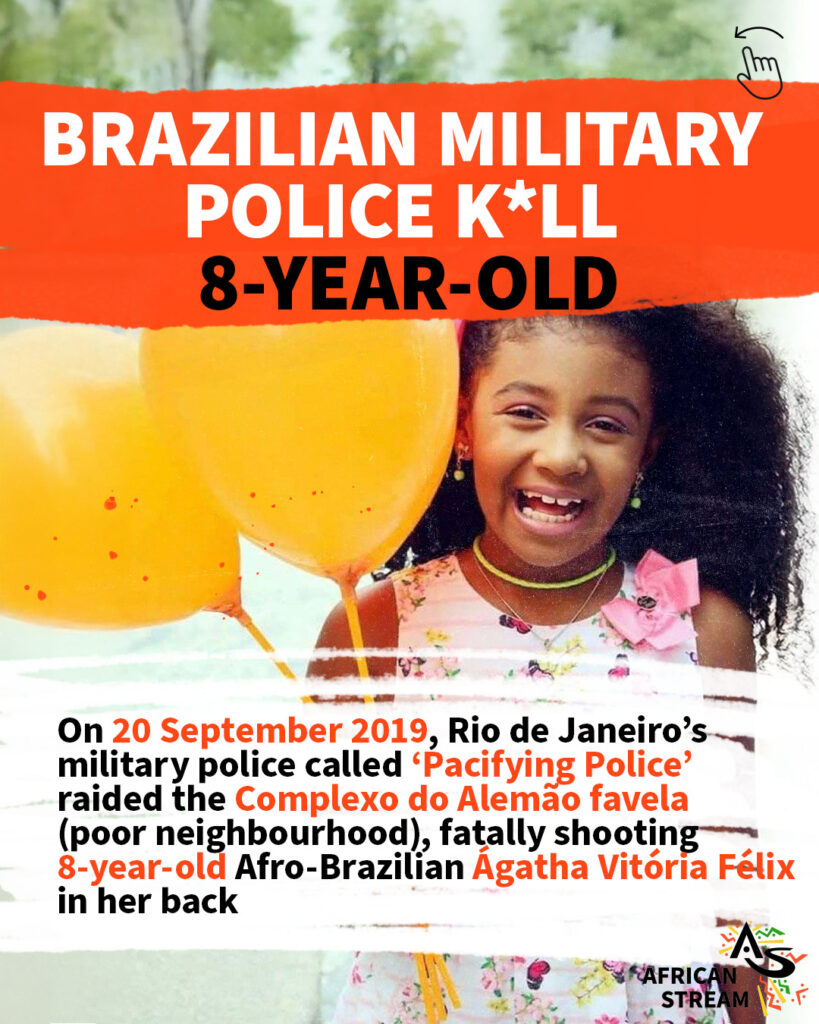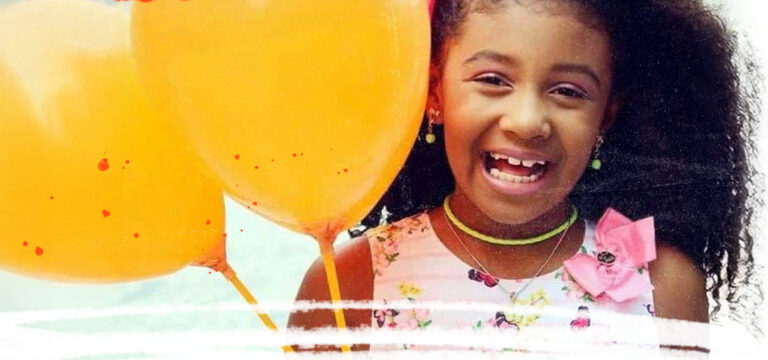Today marks a sombre yet not so uncommon milestone. It’s the fifth anniversary of Brazilian military police k*lling 8-year-old Ágatha Vitória Félix as she rode a kombi, a collective public transport van, in the Complexo do Alemã (German Complex), one of Rio de Janeiro’s largest favela conglomerations. A favela is a Brazilian slum.

Gunfire rang out on the evening of 20 September 2019, striking Ágatha in her back while she sat next to her mother. Authorities charged military police officer Rodrigo José de Matos Soares with firing the rifle that k*lled her. However, public outcry, primarily from favela communities that know all too well what happens when structural racism and systemic violence go unchecked, hasn’t halted the bloodshed.
Then, former Rio de Janeiro Governor Wilson Witzel (2019-21) blamed Ágatha’s death on people who ‘smoke marijuana,’ as authorities commonly scapegoat poor Brazilians. As far as Witzel was concerned, storming the German Complex to detain or off community members selling and/or smoking weed was well within the law.
In 2023, police interventions in communities across Brazil k*lled 6,393 people, of which 82.7 per cent were of African descent. That’s a 188.9 per cent increase over the past decade, with the mortality rate of African-descended victims 3.8 times higher than white Brazilians. African descendents represent just over half of Brazil’s population.
Brazil’s war on drugs, an offshoot of the US ‘war on drugs’ initiated in 1971, shows no signs of letting up, leaving behind a trail of body bags.






